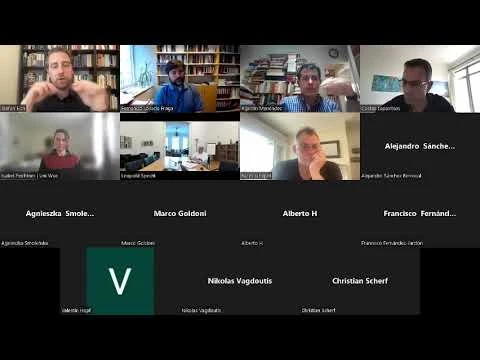European Law Open discussion of "The Currency of Politics" by Stefan Eich
Cambridge University Press, 2022
This is the second part of the seminar, "A Hard Currency of Politics?". The discussion centers on the "The Currency of Politics" by Stefan Eich and is hosted by the journal European Law Open. Stefan Eich's presentation of his argument starts at minute 7:53.
The discussion centers on the historic role of monetary systems as political institutions and on the possibility of democratising monetary systems.
Stefan Eich is assistant professor for Political Theory at the Department for Government at Georgetown University in Washington DC. His research focus comprises political theory and the history of political thought, especially the political theory of money.
Comment from our editors:
In this webinar, Stefan Eich discusses the urgency of an open debate on the ultimate purpose of money as a political tool for the realisation of democratic self-governance, under the impact of intensifying and increasingly correlated crises (climate and biodiversity crisis, coronavirus crisis, Ukraine crisis, etc.). According to Eich, democratising the monetary system does not only involve repoliticising the dogma of independence attached to many major central banks, but it rather calls for questioning the privatised money creation process itself. It involves, for example, the understanding that money should be seen as an essential institution with which democratic citizens should ultimately govern themselves and consciously negotiate its value. However, Eich grapples with the idea of an emergent democratic money in relation to climate change: is it an obstacle or part of solving the crisis? Eich observes also that the notion of money is still widely being regarded as a neutral veil within social relations as obsolete with the state being finally acknowledged as playing a major role in stabilising the monetary order in the last resort. This discussion must be understood to be the beginning of a much broader and deeper public debate on the operating principles of money.
Go to: European Law Open discussion of "The Currency of Politics" by Stefan Eich

